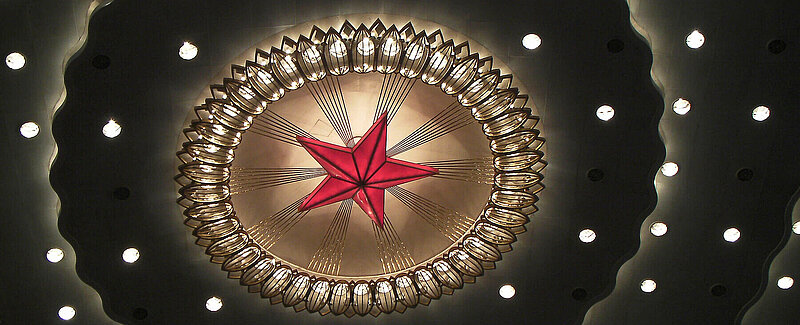
The Internet is often regarded as contributing to citizen participation by giving citizens the opportunity to engage in political talk and assess conflicting ideas. Critics have conversely emphasized the Internet’s potential to damage deliberative ideals by facilitating exposure to like-minded views, encouraging incivility, or decreasing satisfaction. The project, Authoritarianism 2.0: The Internet, Political Discussion, and Authoritarian Rule in China, investigates which social media facilitate political participation and why. Focusing on interactivity as the defining characteristic of social media platforms we explain how the technological design contributes to environments that facilitate or hinder the expression of views on public affairs. The project also seeks to explore how netizens experience discussion in those settings, as well as whether (and how) those experiences matter for political participation.
Publications
- Stockmann, Daniela, and Luo, Ting. (2017). “Which Social Media Facilitate Online Public Opinion in China?“. Problems of Post-Communism 64, Issue 3-4: pp. 189-202.
- Shi-Kupfer, Kristin, Ohlberg, Mareike, Lang, Simon, and Lang, Bertram. (2017). “Ideas and Ideologies Competing for China’s Political Future: How Online Pluralism Challenges Official Orthodoxy.” Merics Papers on China No. 5.
- Stockmann, Daniela. (2015). “Responsive Authoritarianism in Chinese Media and other Authoritarian Contexts“. The Political Communication Report 25:1.
- Stockmann, Daniela. (2015). “The Chinese Internet Audience: Who Seeks Political Information Online?”, In Hanspeter Kriesi, Daniel Kuebler, and Lisheng Dong (Eds.), Urban Mobilization and New Media in Contemporary China. London: Ashgate.
- Stockmann, Daniela. (2014). “Challenges to Regime Stability: Media”, In Avery Goldstein and Jacques deLisle (Eds.), China’s Challenges. Philadelphia: University of Pennsylvania Press.
Areas of focus
This research project investigates these questions in the context of China, focusing primarily on the differences between the WhatsApp-like Wechat, the Twitter-like social media services Sina Weibo, and Baidu Tieba. These social media platforms provide three of the largest social media platforms in Chinese cyberspace. Using qualitative and quantitative research methods, Daniela Stockmann and her team found that the interactivity on social media platforms is centred around one core function, which has important implications for how users experience these platforms. Wechat and Tieba promote the formation of opinions, while Weibo facilitates the circulation of opinions and issues across social groups and other platforms. More broadly, more active users tend to use social media for social interaction while passive users primarily use social media in order to gain information. Social media provide opportunities for politically less-sophisticated users to become more engaged in public affairs.
Funding
This project has received 1.5 million euros in funding from the European Research Council (ERC) under the European Union's Seventh Framework Programme (FP/2007-2013) / ERC Grant Agreement n. [338478]. The Hertie School and Leiden University are both beneficiaries of the grant.
Duration
2014 - 2019


